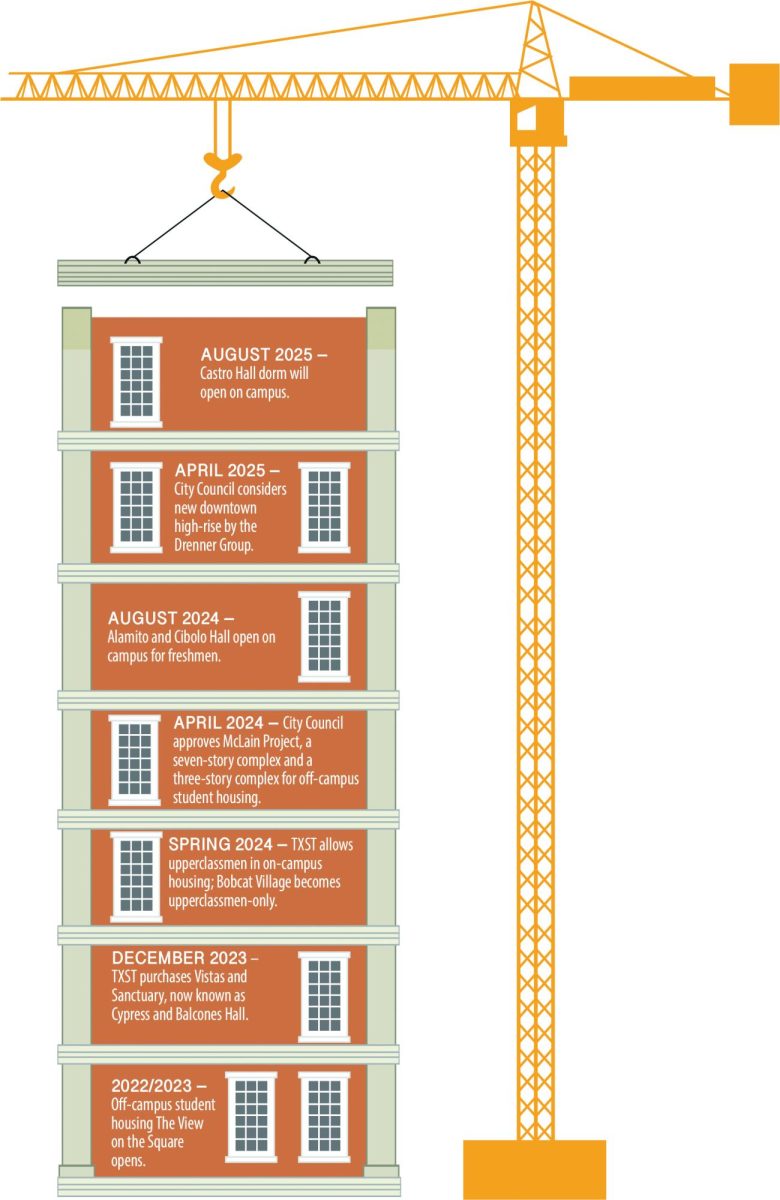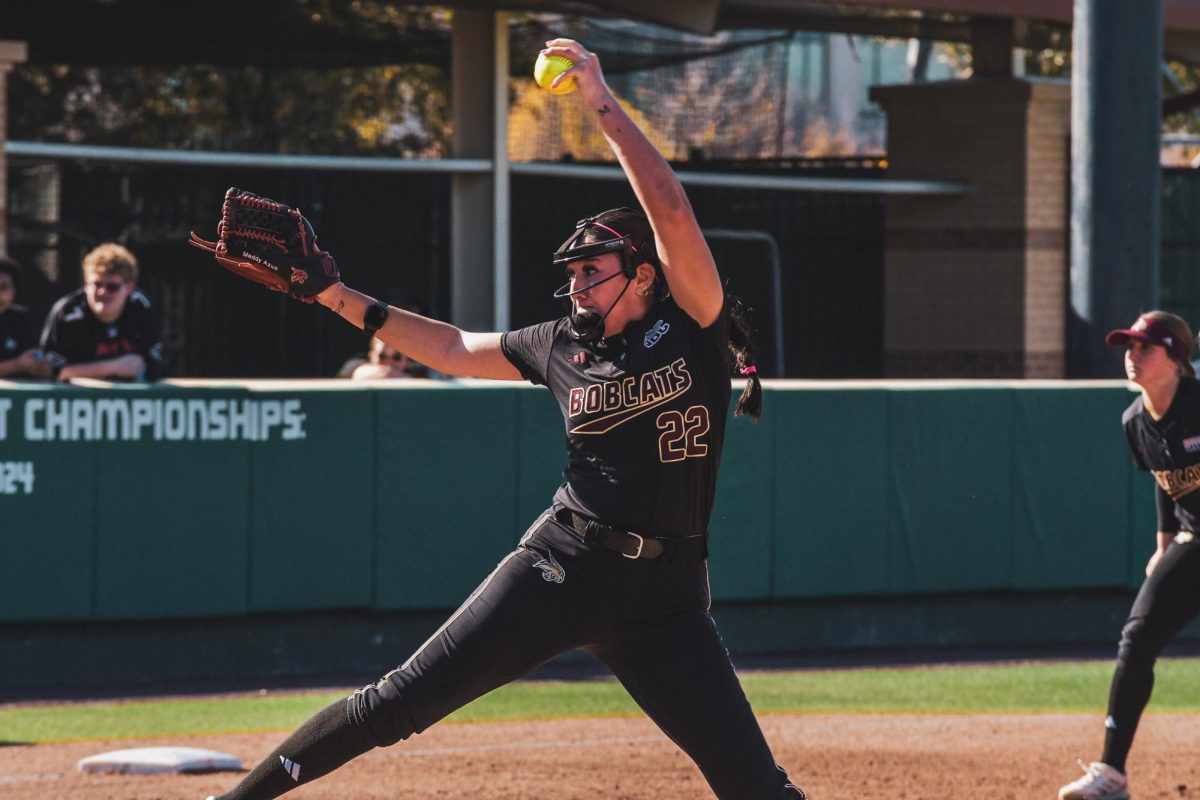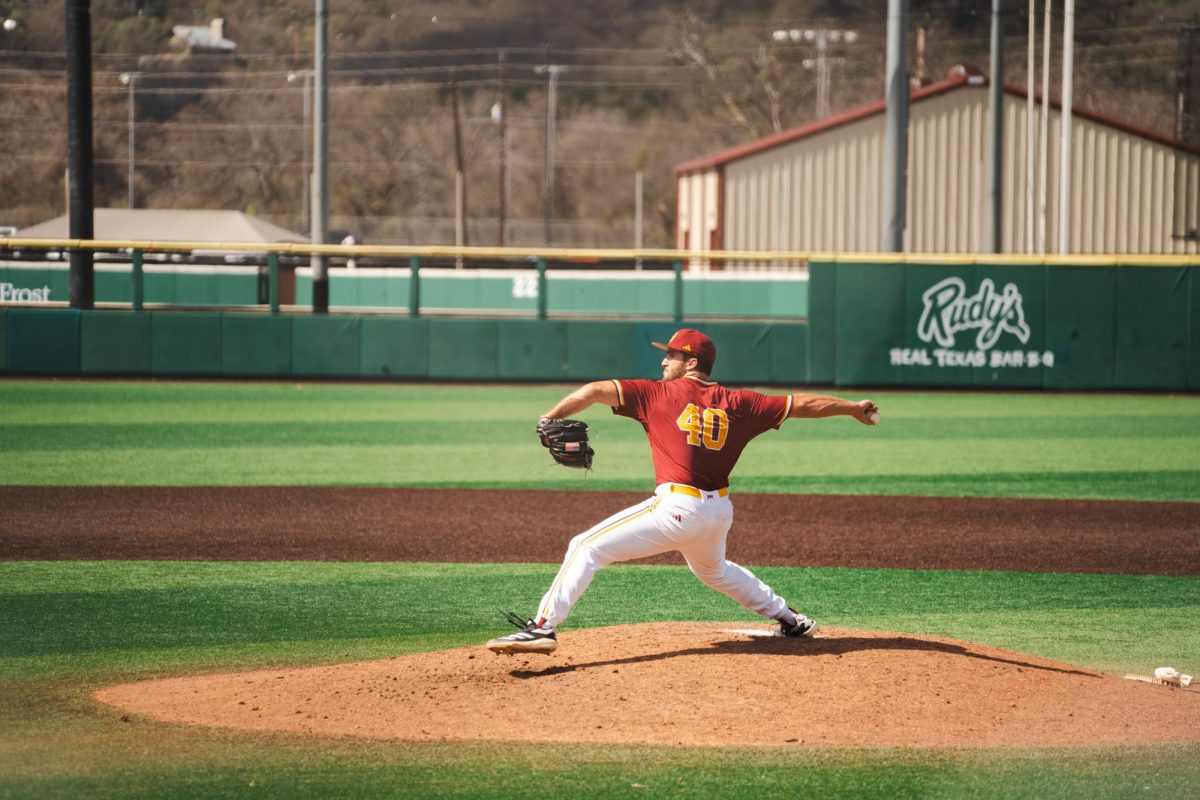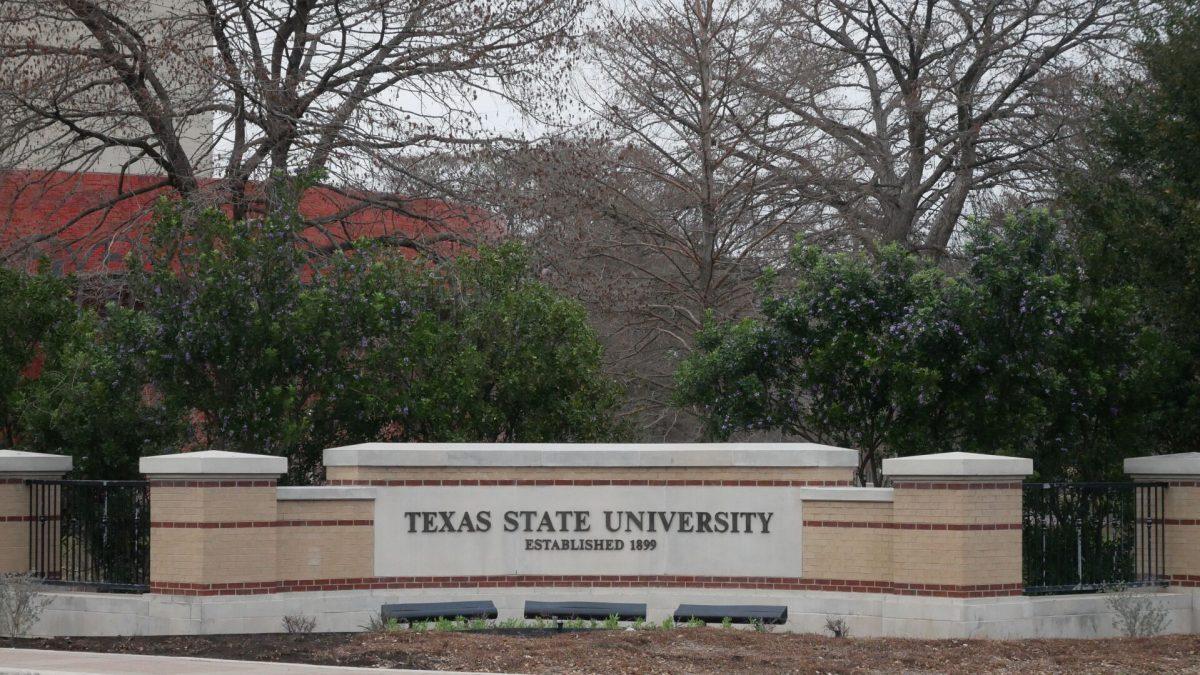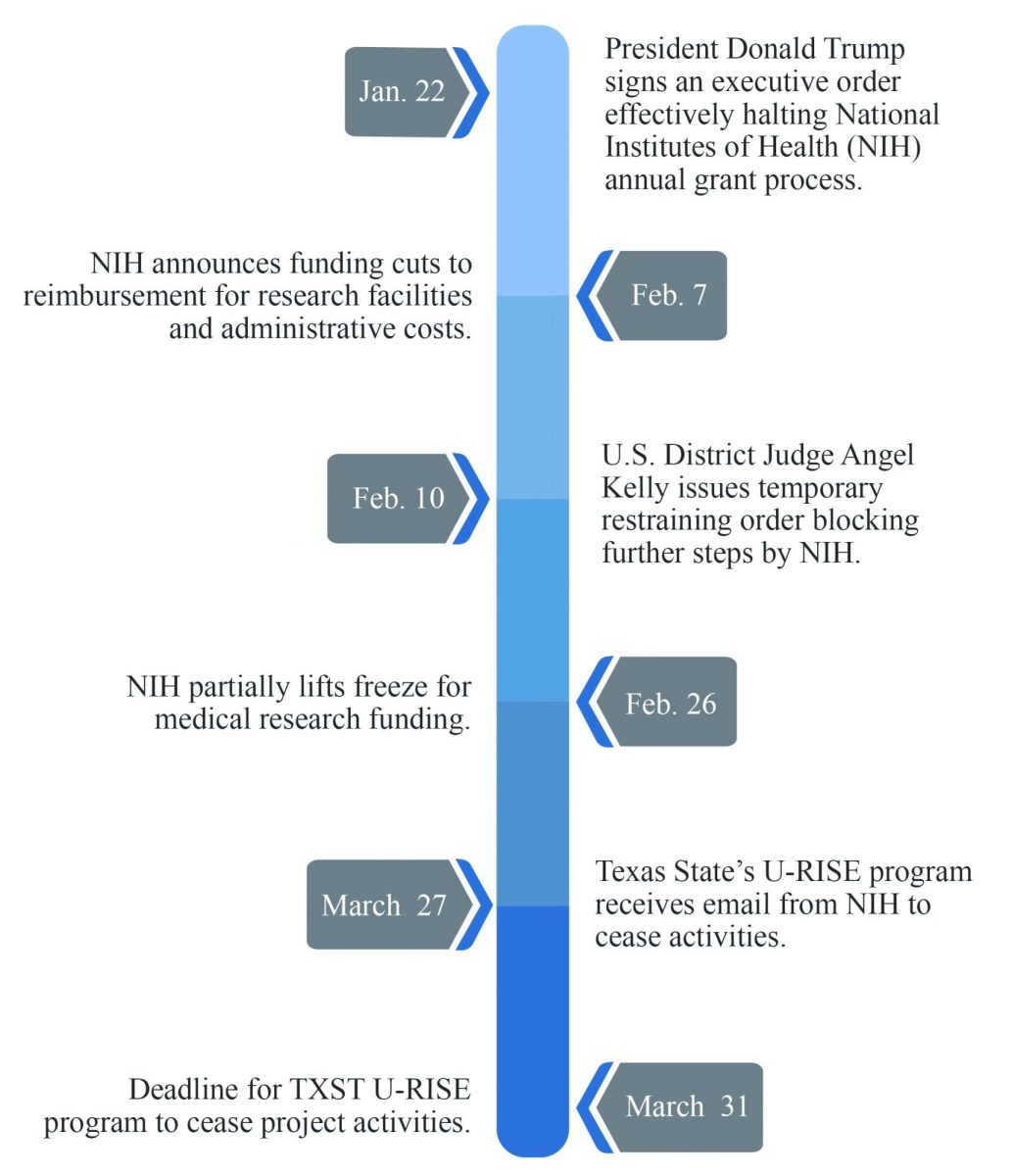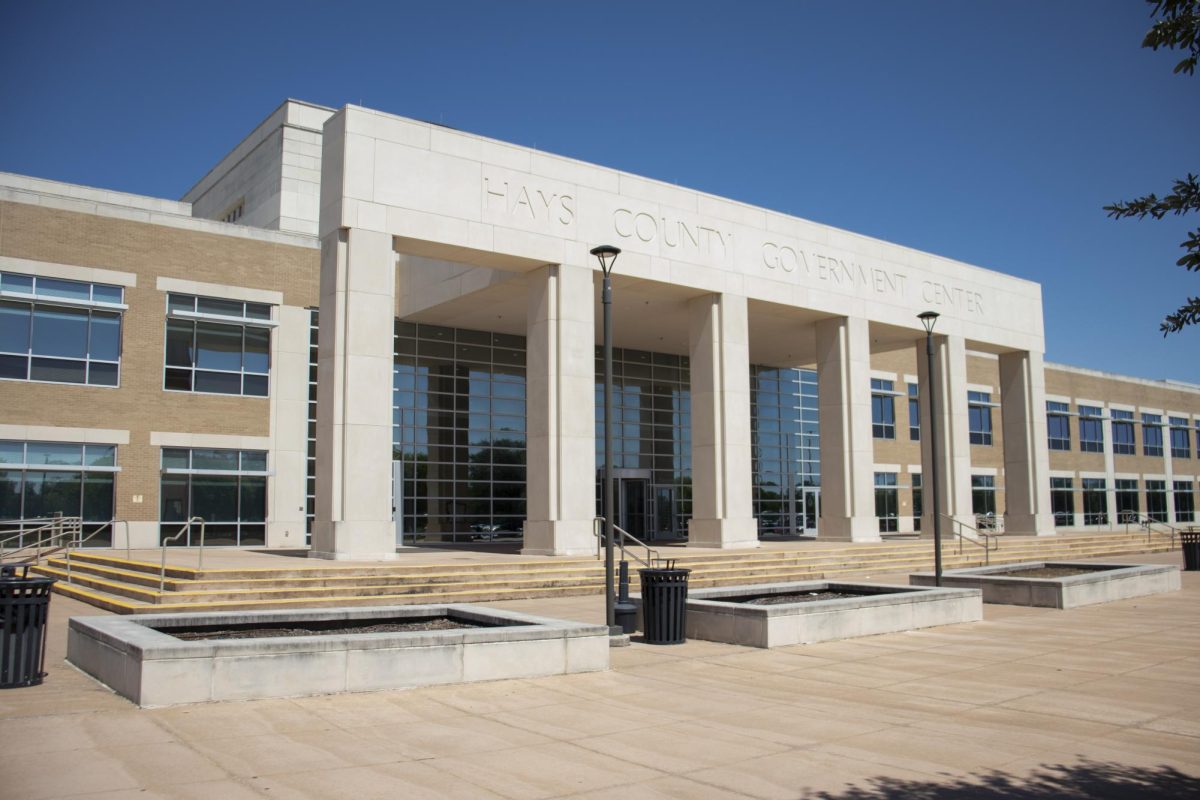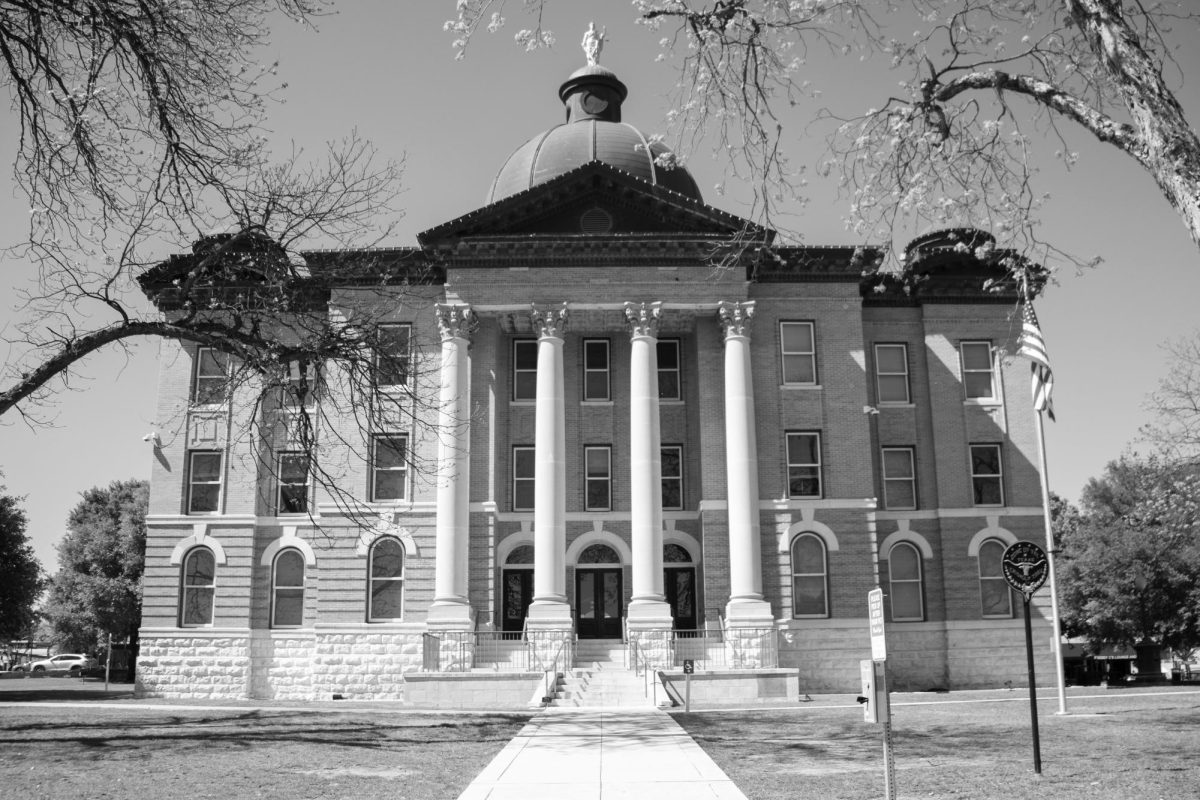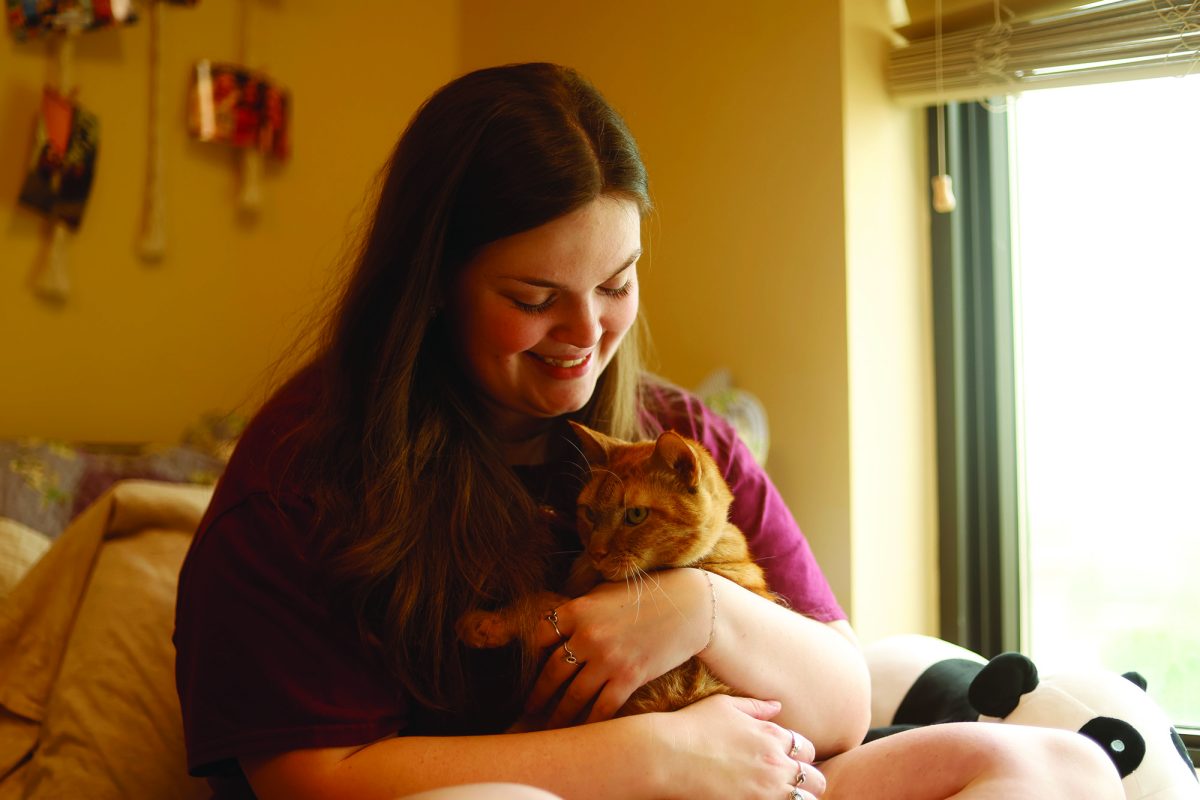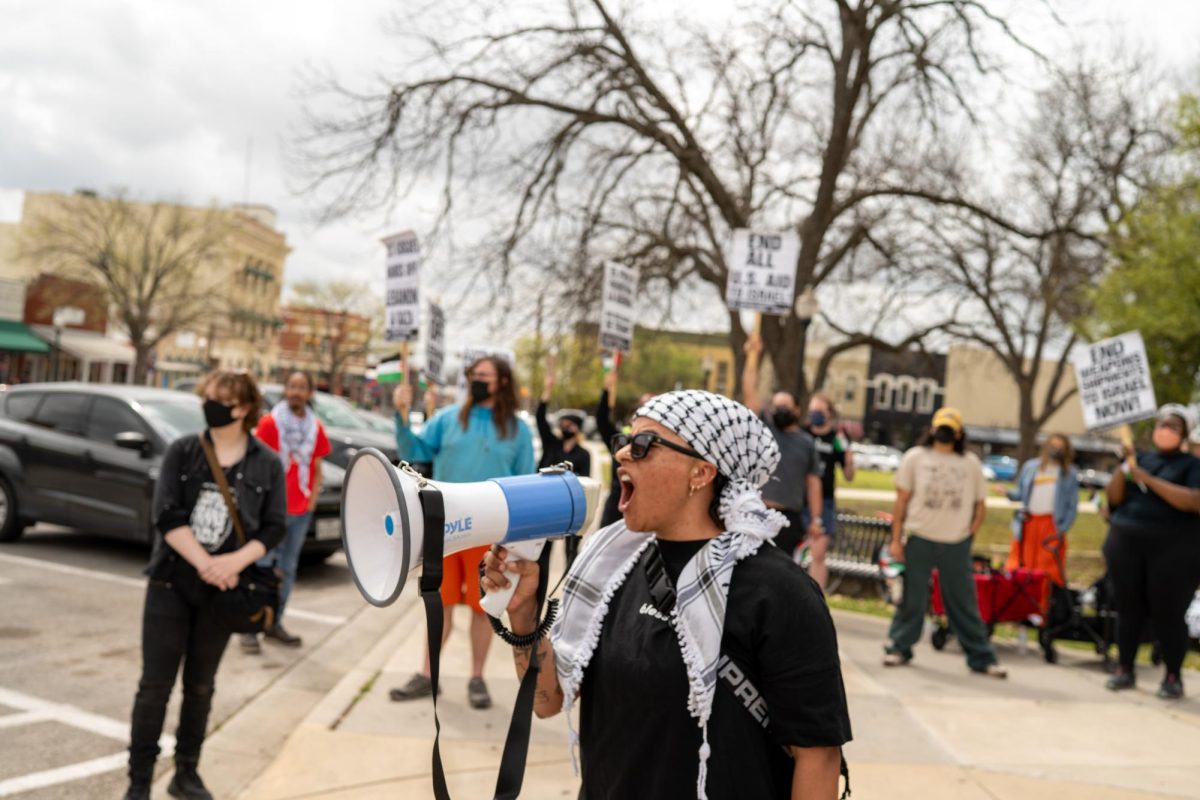At its April 15 meeting, the San Marcos City Council will hold a public hearing on a proposed seven-story student housing apartment complex across from the downtown H-E-B after the San Marcos Planning and Zoning Commission voted to deny the project on March 25.
On March 25, the commission denied two conditional use permits (CUPs) requested by the developer: one to increase the building’s height from five to seven stories and another to allow for purpose-built student housing, which is housing designed specifically to meet students’ needs.
That vote means both permits now require a supermajority, six out of seven council votes, for approval.
Under the city’s current development code, the developer is allowed to build a five-story multi-family housing complex but is seeking the CUPs to construct a student housing complex.
The project site is currently zoned CD-5D (Character District-5 Downtown), which allows up to five stories without a CUP.
Shannon Mattingly, a director of land use and entitlements at the Drenner Group, a real estate law firm that concentrates on land-use projects, is working with the project’s development group, Next Chapter Properties (NCP), to move forward with the development.
Previously, Mattingly served as the director of planning and development services for San Marcos until September 2022.
Mattingly also worked on the McLain Project apartments in 2024, which were the first downtown student housing apartments approved after the development code was updated in 2023, despite planning and zoning voting unanimously to deny the McLain project’s CUP applications.
In a letter to Planning Director Amanda Hernandez, Mattingly cited a recent parking study completed by Capitol Market Research to provide parking recommendations for the proposed complex.
Mattingly also used a study from Capitol Market Research, conducted in July 2023, to support the McLain project in 2024, where the study was represented as showing a city-wide need for more student housing, despite only examining 10 downtown apartment complexes.
Additionally, Mattingly said at the March 25 meeting the developers requested another parking study but did not provide a timeline for its completion.
In the letter to Hernandez, Mattingly referenced a Texas State University housing demand study that allegedly found the city was short 10,000 to 12,000 off-campus beds. Mattingly said NCP met with university officials who confirmed ongoing struggles to house freshmen on campus.
However, the study’s details, such as the date or methodology, were not included in the public packet.
“We’ve been involved in this business for a very long time, and we’re very proud of our reputation,” NCP Chief Financial Officer Patrick Quinn said at the March 25 meeting. “Our leasing practices are stellar in our world, and I’m sorry y’all have had some bad experiences with it, but that’s not what you can expect from us.”
The current development code requires only one parking space per unit, roughly 0.40-0.45 spaces per bedroom, whereas the CUP would require 1.05 spaces per bedroom. Mattingly said at the meeting that the additional building height is needed not to add more units, but to accommodate a multi-level parking garage beneath the apartments that would meet the higher parking requirements.
“They need that additional parking because parents want their kids to be able to park on-site,“ Mattingly said. “To get the amount of parking that they need to accommodate the student housing project, they would need to be able to get a little higher.”
Planning and Zoning Commissioner Amy Meeks voiced concern at the March 25 meeting over the shift in the developer’s plans to shift to purpose-built student housing, noting that when First United Methodist Church sold the property to NCP, they were told no CUPs would be requested.
“It was said numerous times that the developers were not going to ask for any CUPs,” Meeks said. “They were only going to build exactly what they could… the fact that it has changed concerns me a great deal.”
According to the meeting packet, planning staff recommended denial for the first CUP and remained neutral on the second CUP, citing the project’s conflict with the city’s adopted Downtown Area Plan.
“What you’re saying to us tonight is ‘Oh that will help bring down the cost,’ then everybody in that unit has to pay less,” Meeks said. “That doesn’t fly. We know what that means is the developer is getting more money. The students are not paying less, it’s more money for the developer, so I’m very concerned that is your explanation.”
City staff added that if the developer agreed to several conditions, the CUPs could be considered. Among the proposed conditions were: Publicly posting leases that guarantee either alternate housing or a full refund if units aren’t ready on time, offering both individual leases and full-unit leases and prohibiting sale to a tax-exempt entity, like Texas State, for seven years to prevent the university from purchasing the apartments.
Katherine McCrocklin-Bowers, president of the Alpha Delta Pi Housing Corporation and a nearby resident, submitted a letter opposing the CUPs, arguing the project would exacerbate an already congested area.
“The proposed changes prioritize financial gain over responsible development and the long-term well-being of current property owners,” McCrocklin-Bowers wrote.
Nikkye Vargas, San Marcos resident and Daughter of the Wild owner, said at the March 25 meeting she does not see how adding another student housing development will help support the downtown community, particularly because previous apartment complexes have ended up being sold to Texas State University.
“There’s people here who helped write those plans who are now on the developer’s side asking for changes on it,” Vargas said. “As a downtown business owner…you’re continuously putting us into gridlocks for grocery runs, for the people that live here, for the people that work here. I think it’s inequitable, and it deserves to be questioned a little more than it is.”
San Marcos City Council will take up the two proposed CUP requests during its April 15 meeting. If either vote fails to reach a 6–1 supermajority, the project as proposed cannot proceed.
The San Marcos City Council meets at 6 p.m. every first and third Tuesday of each month. For more information, visit its website.



